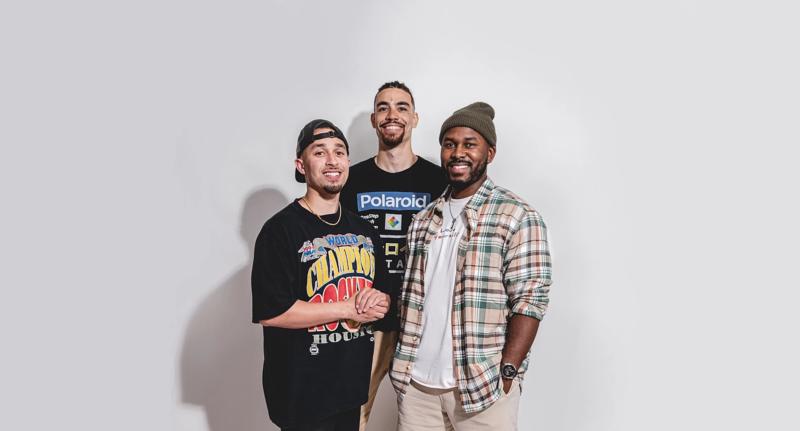There’s a difference between being for the culture and doing it for the culture and the three visionaries at Tradeblock — a sneaker trading app where kicks are currency — are committed to the latter for the sneaker community.
The Austin-based startup officially hit the ground running earlier this year in May, but the initial vision for Tradeblock was birthed in 2009 by co-founder Tony Malveaux. While inspired by ESPN’s Trade Machine, Malveaux connected with his longtime best friend and now fellow co-founder Darren Smith about his idea — but it was a dream deferred until bringing their fellow childhood friend Mbiyimoh Ghogomu — Tradeblock’s CEO — onboard and from that moment they’ve become trailblazers in the sneaker marketplace.
How Tradeblock Is For The Culture, By The Culture
As a Black-owned tech-enabled startup, co-founders Ghogomu, Malveaux and Smith are a part of tackling sneaker inaccessibility while more importantly building community for people of color along the way — or as Smith describes it — “bringing the creators of the culture to the forefront.”
Smith continued: “I think the reception that we’ve received from our community even when we were just first starting, just viscerally you could feel that we were filling a void. You can go to any sneaker consignment shop in the country and even some websites would say buy, sale, trade, but there was no avenue to actually trade your shoes. What Tradeblock represents to the sneaker community is access and democratization.”
Tradeblock On Google For Startups Black Founders Fund
The team exemplifies the motto of “for the people, by the people” — which makes their recent welcome into Google for Startups Black Founders Fund’s Class of 2021 a more than befitting decision out of the tech giant’s 50 recipients.
As previously reported by AfroTech, selected Black founders each received non-dilutive funding of $100,000 from the Black Founders Fund’s capital of $10 million. The team’s passion has been driving their app and now this funding gives them the fuel necessary to put on for their community at an even higher level.
While known for their quick turnaround on fulfilling their users’ needs on their app, the team plans on using the funding to expand on their social media presence, deepen the social aspect for trades and continue innovating ways to make trading easier — which all ultimately leads to their overarching mission of bringing in more sneakerheads to their current community of over 70,000 members.
As Tradeblock continues to grow, Malveaux hopes to be a part of passing down the team’s wealth of knowledge from their startup experience to those who don’t get the opportunity of obtaining such information — especially inner cities in America.
“I did grow up in what they would call the hood and people from my neighborhood don’t get this type of information,” Malveaux tells AfroTech. “Nobody out there knows the first thing about starting a business — let alone a tech-enabled startup. For me the biggest takeaway from this is being able to hand down that information to people in the neighborhood and give them access to these things.”
Tradeblock On Representing For Sneaker Culture
What initially started off as a shared love for sneakers, a dream and a leap of faith has not only turned into a way that allows for collectors to trade effectively, but also serves as a social platform for underrepresented groups within sneaker culture to feel seen, heard and valued — a trait Tradeblock has that other companies have yet to match.
“I think for a lot of people in the sneaker culture one of the most refreshing things about Tradeblock — besides that it’s really kind of access and community focused and not just about maximizing the dollars — is we look a lot more like the people who have created the culture,” Ghogomu shares. “One of the most meaningful things for us has always been representing the community that we’re in, but also taking that all the way to the way that we approach pursuing investment. We’ve been really intentional about how we create ways to give more people of color the ability to profit off of our success.”


